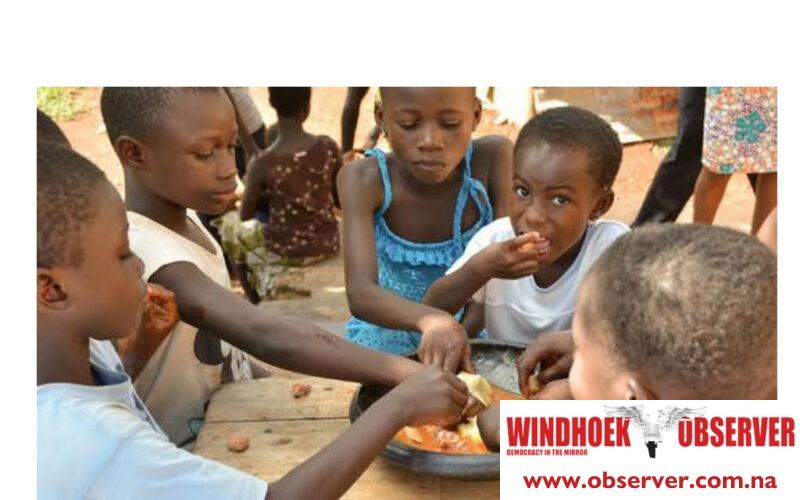Niël Terblanché
The United Nations World Food Programme (WFP), with a contribution of N$9 million from the Government of Japan, has launched a commodity voucher programme to tackle the worsening hunger crisis caused by the ongoing drought in Namibia.
The programme was inaugurated at Okauva Village in the Ohangwena region, aiming to support 27 000 vulnerable people across the Ohangwena and Kunene regions on Thursday.
Ericah Shafudah, WFP Deputy Country Director, while speaking at the launch, highlighted the critical nature of the partnership.
“The partnership with Japan is critical in preventing the escalation of malnutrition and ensuring that families do not have to resort to harmful coping strategies that will hinder their ability to recover from the drought in the long term,” she said.
She added that the programme is expected to address the immediate nutritional needs of affected communities while fostering local economic activity by enabling beneficiaries to redeem vouchers at local retailers.
Shafudah said that the current drought has had a devastating impact on agricultural livelihoods across Namibia which exacerbated food insecurity and malnutrition.
“The commodity voucher programme is part of the WFP’s broader efforts to combat poverty and malnutrition while promoting sustainable recovery,” she said.
According to Shafudah, the programme will focus on reducing malnutrition of children younger than five years, enhancing dietary diversity, and boosting household purchasing power.
“By supporting local retailers, the initiative is expected to stimulate local economies in the targeted regions,” she said.
Sebastian Ndeitunga, the governor of the Ohangwena region, reiterated the gravity of the drought situation.
“This support is coming at an opportune time when the resources available are vastly outpaced by population needs. We are observing that many impoverished households, particularly child-headed, female-headed, and elderly-headed, are failing to meet their food and nutrient needs, heightening the need for urgent food assistance not just in the Ohangwena region but across the country,” he said.
Hisao Nishimaki, the Ambassador of Japan to Namibia, stressed the importance of this collaboration.
“With the funding from the government of Japan, this commodity voucher programme will bridge critical funding gaps, save lives, and contribute to Namibia’s progress toward sustainable recovery and resilience in the face of prolonged climatic shocks,” he said
According to Nishimaki, the partnership demonstrates a commitment to ensuring no one is left behind in the pursuit of food security and resilience.
He added that the Japanese government in collaboration with the Namibian government and the WFP is focused on the mission to support vulnerable communities and increase sustainable development.




